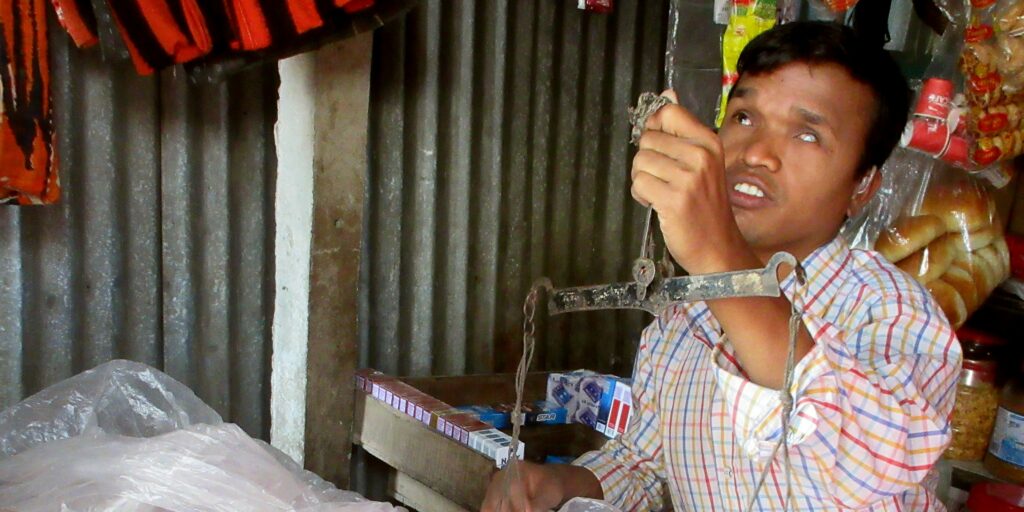Vocational training, self-employment and social participation in India
The recently enacted Rights of Persons with Disabilities Act 2016 includes the provision of a 1% job reservation for persons with multiple disabilities, including persons with deafblindness. Prior to the implementation of the Act, there was no provision for persons with deafblindness; however, it is still too early to measure the impact of these changes.
In India, the majority of adults with deafblindness are in self-employment. As such, Sense India and its partner organisations in 22 states across the country have implemented a vocational training programme for young adults with deafblindness. The programme follows multiple avenues.
An advocacy and awareness-raising programme for officials has resulted in the Industrial Training Institute (ITI) enrolling young adults with deafblindness on vocational training schemes. At the same time, 90 adults with deafblindness have received training support, coaching and seed money to set up their own income generation activities. Thanks to a network of partner organisations, more than 450 young adults with deafblindness have benefitted from vocational training in either centre or community-based programmes. Vocational training and self-employment contribute also to tackle social isolation. To strengthen this aspect, there is engagement to enhance social participation, with the support of family members and local communities.

